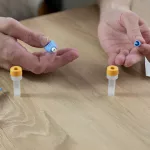Ever wondered why your doctor might suggest a medication for a condition you didn’t see on the label? You’re not alone. In the next few minutes we’ll cut through the jargon and give you a clear, friendly guide to Abilify off‑label uses—what they are, why they matter, and how to decide if they’re right for you. No fluff, just the stuff you’re really searching for, delivered like a chat over coffee.
What Is Off-Label?
“Off‑label” sounds like a secret code, but it’s simply a legal way doctors prescribe a drug for a purpose the FDA hasn’t formally approved. The FDA approves a medication for specific conditions, dosage ranges, and safety data. If later research or clinical experience shows the drug helps with something else, physicians can use it off‑label—so long as they believe it’s safe and effective for you.
According to Healthline, off‑label prescribing is common in psychiatry because mental health conditions often overlap and new evidence emerges faster than regulatory updates. The practice is legal, widely accepted in the United States, and can open doors to treatment options when standard therapies fall short.
Approved Uses of Abilify
Before we dive into the off‑label world, let’s anchor ourselves with what the FDA officially backs for Abilify (aripiprazole):
| Condition | Typical Dose (mg) | Notes |
|---|---|---|
| Schizophrenia | 10–30 | Oral tablets; start low, go slow. |
| Bipolar Mania | 15–30 | Often combined with mood stabilizers. |
| Adjunctive Depression | 2–5 | Added to SSRI/SNRI when response is partial. |
| Agitation in Autism | 2–5 | Targeted at severe irritability. |
| Tourette’s Disorder | 5–15 | Helps reduce motor/vocal tics. |
These approved uses already cover a lot of ground, but many patients and clinicians discover that Abilify can be a useful tool beyond these indications. That’s where the off‑label conversation begins.
Top Off-Label Uses
Below are the most talked‑about off‑label applications, each with a quick snapshot of dosing, evidence strength, and what you might gain.
| Off‑Label Condition | Typical Abilify Dosage (mg) | Evidence Strength | Key Benefit |
|---|---|---|---|
| Anxiety (GAD, Social) | 2–10 daily | Low‑to‑moderate (a study) | Reduces rumination, improves calmness |
| Obsessive‑Compulsive Disorder (OCD) | 5–15 daily | Moderate (case series, expert opinion) | Damps intrusive thoughts when SSRIs alone aren’t enough |
| Autism‑Related Irritability (children 6‑17) | 2–5 (liquid) | Strong – FDA‑approved for this exact use (Reuters) | Sharp drop in aggression and self‑injury |
| Premenstrual Dysphoric Disorder (PMDD) | 5–10 daily | Emerging (integrative psychiatry blog 2024) | Stabilizes mood swings in luteal phase |
| Intermittent Explosive Disorder | 5–15 daily | Limited but promising | Helps control sudden outbursts |
Abilify for Anxiety
Imagine your brain is a bustling city during rush hour—traffic (thoughts) whizzes everywhere, and you can’t find a quiet side street to breathe. Abilify, at low doses (often 2–10 mg), can act like a subtle traffic cop, calming the dopamine and serotonin signals that fuel anxiety. A 2020 BMJ meta‑analysis found a modest benefit for anxiety when other meds didn’t cut it, but the quality of evidence was low, so close monitoring is essential.
How does a doctor decide the right dose? Usually they start at 2 mg, watch how you feel for a week, then titrate up gradually. The goal is “just enough” to ease the nerves without triggering the more pronounced side effects we’ll discuss later.
Abilify for OCD
Obsessive‑Compulsive Disorder feels like an unwanted playlist stuck on repeat. Adding Abilify to your SSRI can sometimes “change the song” by modulating dopamine pathways that keep the compulsions looping. Clinicians often report success with 5 mg to 15 mg daily, especially when patients report persistent intrusive thoughts despite max‑dose SSRI therapy.
One patient I heard of (let’s call him Alex) tried every SSRI under the sun with minimal relief. After his psychiatrist added 7 mg of Abilify, his compulsive checking dropped dramatically. Alex’s story isn’t a miracle cure, but it shows how off‑label combos can be game‑changers when used wisely.
Autism‑Related Irritability
For families dealing with severe aggression in autistic children, this off‑label (actually now FDA‑approved) use can feel like a lifeline. The drug’s partial agonist action helps balance neurotransmitters that often run wild in autism, reducing self‑injurious behavior. The FDA approval, announced in 2009, came after two 8‑week trials showed clear benefit over placebo.
If you’re a parent, remember the trade‑off: routine blood work to watch weight, blood sugar, and lipids is a must. But many families report that the calm they gain outweighs the monitoring burden.
Other Emerging Uses
Beyond the headline conditions, researchers are exploring Abilify for premenstrual dysphoric disorder, disruptive mood dysregulation disorder, and even as an “as‑needed” tool for sudden anxiety spikes. The evidence is still building, but the enthusiasm in the psychiatry community signals real potential.
Talk To Your Doctor
Deciding whether an off‑label option fits your life is a conversation, not a monologue. Here are some prompts you can bring to your next appointment:
- “What evidence supports using Abilify for my specific symptom?”
- “Can we start at the lowest dose and titrate slowly?”
- “What labs should we check before and during treatment?”
- “How does this compare to other off‑label antipsychotics?”
Most clinicians will happily share the research, dosing guidelines, and monitoring plan. If they can’t, it’s okay to ask for a second opinion or for references to peer‑reviewed studies. Transparency builds trust.
Benefits vs Risks
Every medication walks a tightrope between upside and downside. Abilify’s side effects are a mix of the common and the rarer:
- Akathisia (inner restlessness) – often the first warning sign.
- Weight gain and metabolic changes – monitor diet and labs.
- Insomnia or sedation – dose timing can help (morning vs evening).
- Movement disorders (tardive dyskinesia) – very rare at low doses but worth watching.
- Blood sugar spikes – especially important for those with diabetes.
Balancing these risks with the potential benefits is a personal decision. A simple “risk‑benefit calculator” you can sketch on paper—assign 1‑5 points for how severe your symptoms are and 1‑5 for how worried you are about side effects—can clarify the picture.
For example, a teenager with severe aggression might score a 5 on symptom severity but only a 2 on side‑effect concerns (because the family can monitor weight). That calculation often tips the scale toward trying Abilify.
Evidence & Credibility
When you read about off‑label antipsychotics, it’s easy to get lost in a sea of anecdote. Here’s how you can separate solid science from hype:
- Peer‑reviewed studies – Look for articles in journals like BMJ, JAMA, or Psychiatry Research. The 2020 BMJ meta‑analysis on anxiety is one such source.
- Reputable medical sites – Healthline, Mayo Clinic, and the FDA’s own label information are curated by professionals.
- Professional guidelines – While the APA doesn’t officially endorse many off‑label uses, they do note that clinicians may consider them when guidelines fall short.
- Clinical expertise – A board‑certified psychiatrist with years treating similar cases adds a layer of practical wisdom you won’t find in a paper.
Whenever you spot a claim, ask yourself: “Is there a DOI or PubMed ID? Is the study sample size reasonable? Who funded the research?” This habit keeps you on the side of trustworthy information.
Take Action Now
We’ve covered a lot: what off‑label means, the FDA‑approved baseline, the top off‑label uses (including anxiety, OCD, autism irritability, and more), how to prepare for a doctor’s visit, and how to weigh benefits against side effects.
What’s the next step for you? If you’re curious about an off‑label option, grab a notebook, write down the questions above, and schedule a chat with your prescriber. If you already tried an off‑label dose and have thoughts to share, consider posting in a supportive community—your experience might be the guide someone else needs.
Remember, medicine is a partnership. You bring your lived experience; your clinician brings the science. Together, you can decide whether Abilify off‑label uses are a good fit for your journey.


















Leave a Reply
You must be logged in to post a comment.